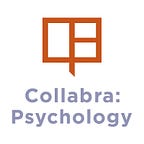Collabra: Psychology Editor Spotlight: Fernanda Ferreira
Collabra: Psychology is fortunate to have an impressive roster of editors. In this ongoing series highlighting our editors, we give you an idea of their work and research, as well as what inspired them to be part of Collabra: Psychology. Next up: Fernanda Ferreira, Ph.D., Editor, Cognitive Psychology.
As you read this sentence, your eyes fixate on a particular word while scanning several characters ahead to let your brain prepare for what comes next. It will be an unconscious and most likely effortless task, though your pace might slow if I toss in a word like “psycholinguistics.”
That’s the study of how people produce, process, and perceive language, and it’s the interdisciplinary field of focus for Fernanda Ferreira, Professor of Psychology at UC Davis. Ferreira conducts experiments on how we construct spoken sentences — um’s and all — and how we comprehend what someone says. She also investigates how we read written language and what factors influence individual differences in our perceptual encoding of text.
“I was attracted to Collabra: Psychology because it seems to have all the key pieces of what I see as the right way to do scientific publishing: It’s open, rigorous, honest, and fair.”
For some studies, she collaborates with cognitive psychologist John Henderson, also a UC Davis professor and Ferreira’s husband. They met as graduate students at the University of Massachusetts, Amherst. Another psycholinguist in the family is Ferreira’s younger brother, Victor, a professor at UC San Diego. Although both siblings study language, they have yet to work together on a research project. “I’m more on the receiving end, and he’s on the giving end,” she says, in that Victor studies how one produces words while Fernanda emphasizes the listener’s role in processing language.
“I guess I’m driven to understand the basic, fundamental mechanisms that enable people to understand language so effortlessly,” she says. “I also really enjoy the scientific process: I like reading and thinking about scientific ideas, weighing evidence, changing my mind depending on how my experiments or other people’s experiments turn out.”
The desire to participate in the dynamic discussions of science also motivates Ferreira as an editor of Collabra: Psychology. She sees an opportunity to help her field deal with — or at least be more transparent about — differences around statistical approaches to analyzing data. “I was attracted to Collabra:Psychology because it seems to have all the key pieces of what I see as the right way to do scientific publishing: It’s open, rigorous, honest, and fair. It treats reviewers and authors with respect,” Ferreira says. “I would love to see the Collabra: Psychology model become the norm in scientific publishing.”
Much of Ferreira’s own research examines disfluencies, or errors, in speech. She says, “If we only study language that doesn’t have any noise or mistakes, we don’t get a full picture,” that could help reveal how we manage to understand language as it’s being generated. What prompts a speaker to pause, or to insert uh’s, um’s, and other filler into conversation? When someone misspeaks — substituting “right” for “left” in a direction, for instance — and then corrects the error, does it lower the level of comprehension? It turns out that between six and ten percent of typical spoken words include some kind of disfluency, so they are unlikely to be discarded from our discourse anytime soon.
All spoken language strikes a delicate balance between the desires of production and comprehension; a speaker wants the most efficient message delivery, while a listener wants the most explicit content. Between those goals lies plenty of space for ambiguity or confusion. Still, the prevalence of errors in our utterances underscores that humans have a robust means of understanding language.
“The language system works really well, and most of the time we don’t even know it’s working because it gives us what we want,” says Ferreira. Much of the time, she believes, what we want is to exchange information. And Fernanda Ferreira aims to fulfill that purpose within the context of Collabra: Psychology.
“I really hope that I can be part of this new and incredibly important movement towards openness and transparency in science at all levels: in the way data are reported and made accessible, in how articles are reviewed and chosen for publication, and in how scientific research is made available to the public.”
— Blake Edgar
